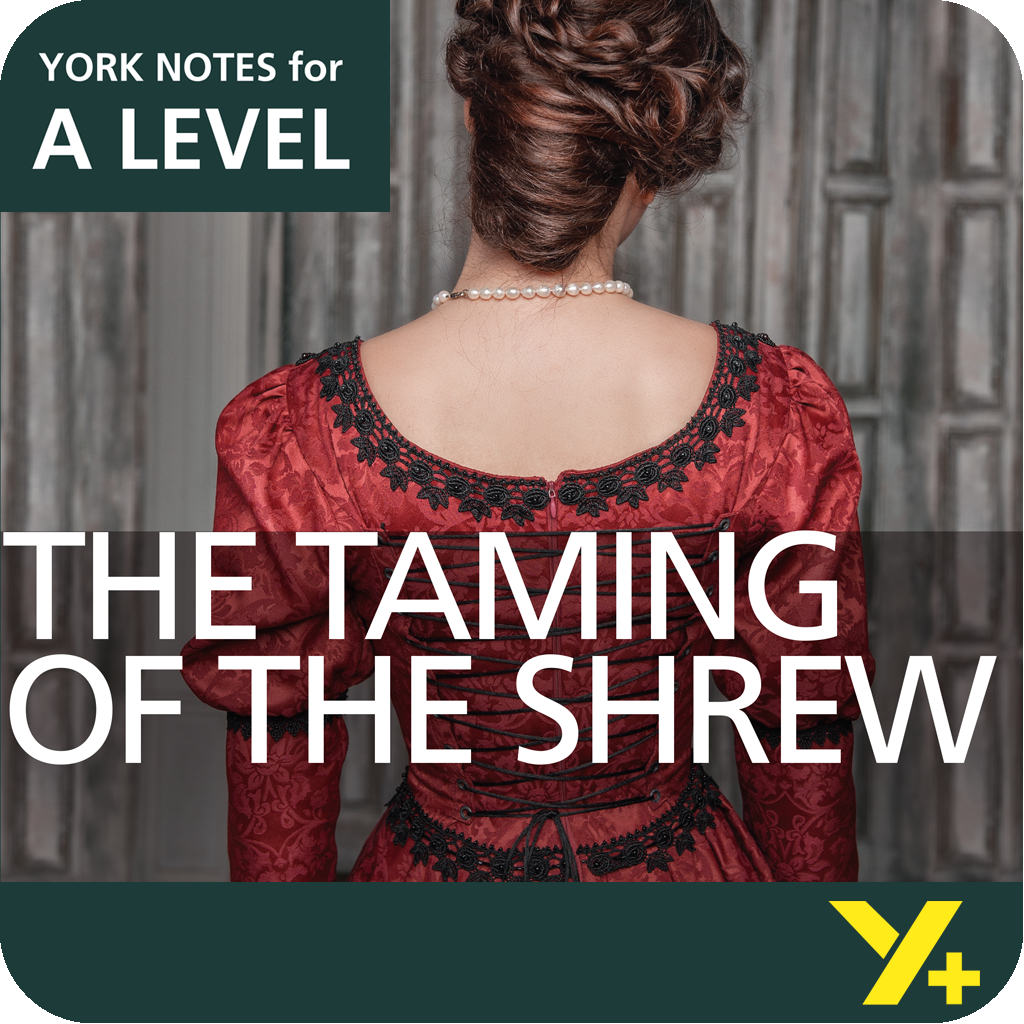Examiner's Notes
You assessed this answer as a Lower.
Hover over the highlighted text to read the examiner’s comments. These are linked to the Assessment Objectives, which are listed in the side panel.
This section is important to the comedy of the play. It comes right in the middle of the play and brings the action to a climax. Then it sets up suspense about how it will all end.
It begins with an angry speech from Katherina. She uses proverbs in the speech which tell Petruccio to leave. Her use of clichés suggests that she is a stereotypical nagging wife of the sort the audience would find comical. Petruccio responds by pretending to be scared of her. “O Kate, content thee; prithee be not angry.” This also makes the audience laugh, as he is clearly not really henpecked. Ignoring her rudeness is a part of his taming strategy. When he met her he paid her a lot of compliments about her mildness even though she was rude to him. He tells us later that he will pretend that he is keeping her without food and sleep out of love for her. He begins his taming strategy when he pretends to defend Katherina against everyone else on stage. I think he is doing it for another reason as well – to make her think what a loving person would be like.
Petruccio does a lot of comic things in this extract. He takes centre stage and is rude to everyone in an over-exaggerated way. He tells them they are ‘thieves’ and accuses them of going to the feast to get drunk and behave madly. He was late turning up, he behaved badly in the church and now he refuses to go to his own wedding feast and drags Katherina away. This gives a lot of scope for slapstick comedy, especially at the end where Petruccio and Grumio pretend to fight. Everyone on stage will be involved, either watching or maybe even fighting if Petruccio or Grumio actually attack them. It is important to note that they have not seen this side of Petruccio before and their surprise will be comic for the audience. Katherina does know that he can act in ways that seem weird. She even told her father he was marrying her to a lunatic, but he ignored her. Now Katherina says, ‘Father, be quiet’, which suggests that Baptista is trying to speak but is having trouble finding something to say because he is so flustered. This is amusing, as Baptista is usually very controlling, telling his daughters what to do and making a profit out of the suitors by letting them organise tutors for Bianca. Everyone ends up laughing at Katherina as she is carried off, including Bianca, who says she is ‘mad herself, she’s madly mated’. This is typical of Bianca, but Lucentio does not know that yet. She gets Katherina’s place at the feast, just like she always gets the best of everything.
Petruccio’s bad behaviour has another reason, it shows Katherina what she is like when she is shrewish. For instance, she dragged Bianca about with her hands tied, just like he is dragging her off to his house. He goes on behaving like this at his house, he shouts at the servants and the tailor and even hits people, as Katherina has done. Shakespeare is creating the sort of comedy described by Aristotle, which is about ordinary people with ordinary flaws in their characters – nothing evil or wicked, but foolish and not knowing themselves very well. When people laugh at them they are taught to do better. I think this is happening here for Katherina, it is very painful for her to be ‘made a fool’, especially in front of people like Gremio who have been unkind to her. They all assume that she will go on being a shrew for ever, as when Gremio says ‘marry, sir, now it begins to work.’ She stamps and frets, but Petruccio tells her, ‘I will be master of what is mine own.’ He goes on to quote from the Bible, showing her what a wife’s place is. Katherina will learn to change. She does not say very much after Petruccio has made this speech about her being his ‘chattels’ and she will go on being silent in the next Act. Shakespeare is preparing a surprise for the end, when she makes a very long speech that also contains material from the Bible, showing she has learned from Petruccio.
I think Shakespeare meant us to think that this is a happy ending and that Petruccio is doing all this to help Katherina. Women in the period had a very hard time and were expected to obey their husbands even if they were violent. Petruccio is not really violent. He is only pretending here, but I find it uncomfortable to watch as Katherina does not get to choose her husband. In this part she does not want him at all, although earlier in the scene she was upset he had not come to marry her, so she did want to marry someone. Later she calls him ‘love’, so we are meant to think she is happy.
